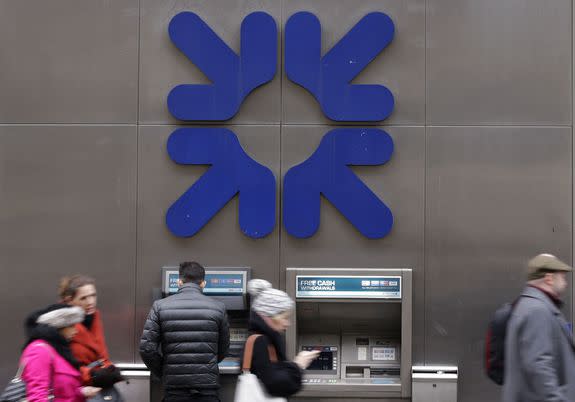Even more brands have joined a boycott against Google over ads on extremist videos

Google now has a full-scale advertiser revolt on its hands.
A host of British brands and governmental groups pulled their business from the search giant's platform last week after reports showed that ads were surfacing on YouTube videos from terrorists and hate-mongers.
Several more joined in over the weekend, including three of the UK's largest banks — HSBC, Royal Bank of Scotland, and Lloyds — and British department store Marks & Spencer.
SEE ALSO: Google swears ads will stop showing up in the absolute worst places
The crisis was enough to prompt ad industry analyst Brian Wieser to downgrade parent company Alphabet's stock from "buy" to "hold" on Monday.
He warned that the backlash has the potential to spill out from the UK to the rest of the world.
"We think that the problems which have come to light will have global repercussions as UK marketers potentially adapt their UK policies to other markets and as marketers around the world become more aware of the problem," Wieser wrote in a research note from his firm, Pivotal Research.
As of Monday afternoon, Alphabet stock was only down around a half a percent after trading at an all-time-high price in recent days.

Image: AP/REX/Shutterstock
The ads in question were first uncovered through a series of investigations by The Times of London and The Guardian in recent weeks. The papers found that Google's automated systems were placing ads for major brands on videos of former KKK leader David Duke, Islamic State sympathizers and a homophobic preacher who praised the Orlando nightclub shooting, among other controversial content.
It's unclear whether these mistakes are more common in the UK, or that's simply where they're getting press attention at the moment.
But Google's head of European operations, Matt Brittin, also conceded the global scope of the issue during a public apology at the Advertising Week Europe conference on Monday, according to AdAge's report.
"This is a good opportunity for me to say sorry, this should not have happened, and we need to do better," Britten said.
Google offered another mea culpa in a blog post last Friday after the British government called a hearing with the company to determine why taxpayer-funded ads were found in such disturbing places.
Neither of the apologies offered much in the way of concrete fixes, beyond a vague promise to figure one out in the coming weeks.
Wieser cited the lack of clear direction as one of the reasons for the downgrade.
"The approach comes across to us as attempting to minimize the problem rather than eliminating it, which is the standard we think that many large brand advertisers expect," he wrote.
You can probably expect to see more hat-in-hand statements from Google this week as its execs face crowds of wary ad professionals at one of the industry's biggest conferences in London.
Google and Facebook currently have duopoly control over the online ads market. Some leading industry figures have recognized that collective force among big brands is the only way to counterbalance that power.
Leading the charge is Marc Pritchard, chief marketing officer at the world's biggest advertiser, Procter & Gamble, who's been outspoken in his criticism of the digital ads model.
"The days of giving digital a pass are over," Pritchard said in a call to arms at an Association of National Advertisers meeting in January. "It's time to grow up. It's time for action."
The boycott in the UK seems to be one of the first instances of advertisers actually following through with that sentiment.
With other long-simmering tensions between marketers and digital platforms now reaching a head — including rampant ad fraud, transparency in how ads are sold, and measurement concerns — it may be only the beginning.
WATCH: Is ad blocking wrong?
